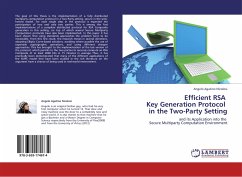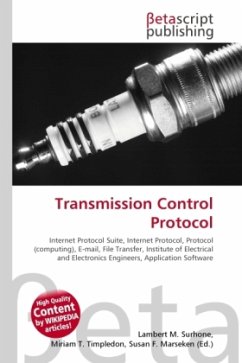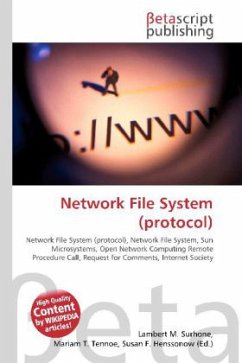
Temporal Key Integrity Protocol
Versandkostenfrei!
Versandfertig in 6-10 Tagen
19,99 €
inkl. MwSt.

PAYBACK Punkte
10 °P sammeln!
High Quality Content by WIKIPEDIA articles! Temporal Key Integrity Protocol or TKIP is a security protocol used in the IEEE 802.11 wireless networking standard. TKIP was designed by the IEEE 802.11i task group and the Wi-Fi Alliance as a solution to replace WEP without requiring the replacement of legacy hardware. This was necessary because the breaking of WEP had left WiFi networks without viable link-layer security, and a solution was required for already deployed hardware. On October 31, 2002, the Wi-Fi Alliance endorsed TKIP under the name Wi-Fi Protected Access (WPA). The IEEE endorsed th...
High Quality Content by WIKIPEDIA articles! Temporal Key Integrity Protocol or TKIP is a security protocol used in the IEEE 802.11 wireless networking standard. TKIP was designed by the IEEE 802.11i task group and the Wi-Fi Alliance as a solution to replace WEP without requiring the replacement of legacy hardware. This was necessary because the breaking of WEP had left WiFi networks without viable link-layer security, and a solution was required for already deployed hardware. On October 31, 2002, the Wi-Fi Alliance endorsed TKIP under the name Wi-Fi Protected Access (WPA). The IEEE endorsed the final version of TKIP, along with more robust solutions such as 802.1X and the AES based CCMP, when they published IEEE 802.11i-2004 on 23 July 2004.












